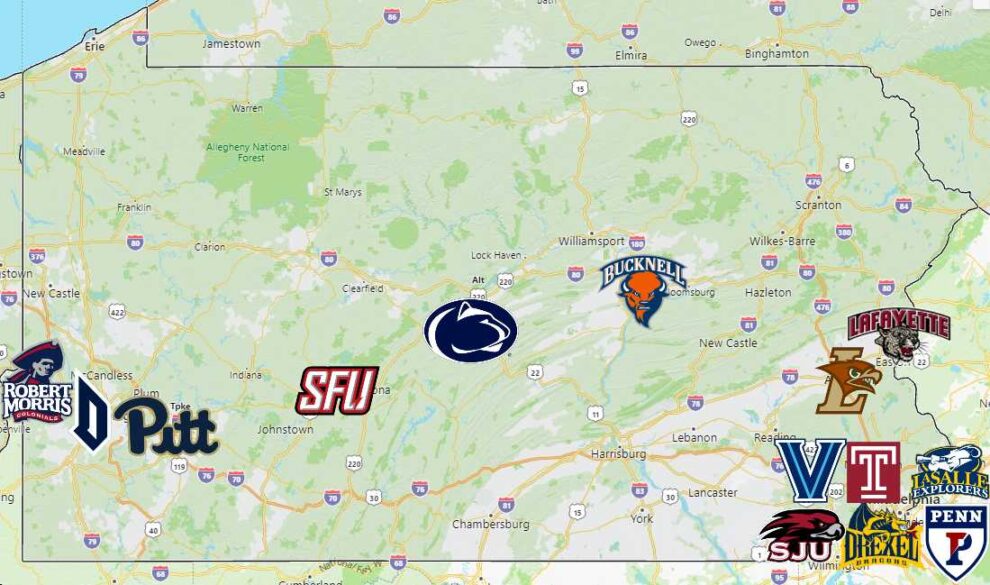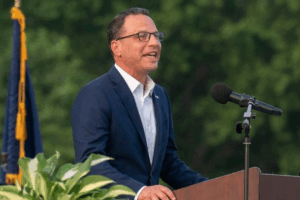Pennsylvania leaders are calling for federal action to address chaos in college sports caused by NIL deals and the transfer portal.
Several Pennsylvania elected officials are criticizing current rules regarding college sports in a landscape that is changing dramatically. The NCAA world is embroiled in a long-running lawsuit over a $2.8 billion settlement that has altered playoff rules and tournament structures, much to the dismay of at least four ranking Pennsylvania officials. Congressman Brendan Boyle (D-02) called out the new power structure among the four largest Division I conferences, arguing it would take away playoff appearances for Pennsylvania universities.
Boyle, who accused Big Ten and Southeastern Conferences (SEC) of “rigging the system”, called in a recent tweet for a congressional hearing into “collusion” between the two conferences, and accused them of being “hellbent” on “destroying college football.” Boyle’s comments come after two Republicans – Reps. Jesse Topper and Perry Stambaugh – introduced legislation in the Pennsylvania State House that would aim to protect students from “poor financial decisions when being paid for name, image and likeness rights.
“It’s a wild, wild west in college sports,” said Stambaugh on current college sports struggles. “It’s probably the biggest change in college sports since the NCAA was created 120 years ago.” Stambaugh added that while he was a fan of new NIL (Name, image and likeness) rules, he believed that legislation in the space to protect some athletes was long overdue. The ongoing trial over the $2.8 billion NIL settlement in the House v NCAA court case provides a new sense of urgency, Stambaugh said, as it’s likely to set the standard for athletes compensation.
The proposed legislation from Stambaugh would call for athletes to have the option to place NIL earnings into a trust that would only be accessible upon graduation. While Congressman Boyle did not comment on Stambaugh and Topper’s proposed legislation, he argued that the House v NCAA case could set certain rules that would be a disservice to the slightly smaller Atlantic Coast and Big 12 conferences. Those conferences include University of Pittsburgh, Penn State, University of Pennsylvania and Temple University, the four largest college sports programs in the state.
Gov. Josh Shapiro also called for legislation to protect athletes and agreed with Congressman Boyle’s warning that certain rules could take away Pennsylvania’s ability to be competitive in NIL rules. Shapiro said that NIL, combined with the new transfer portal, had become “out of control” and called for immediate reform. Gov. Shapiro had previously commented that it was a goal of his to ensure Pennsylvania programs could remain competitive in the changing environment. Shapiro specified that legislation had to ensure that all money from NIL did not predominantly impact one sport or one conference. He added that he had spoken with other officials from states with large, eastern division programs.
Most recently, Judge Claudia Wilken granted a filing extension in the House v. NCAA case from the original deadline of June 6th to June 27th. The sides have made some progress, including agreeing to tweaking roster limit rules last month. Judge Wilken voiced serious concerns about roster limit rules, and how it would relate to new revenue sharing rules between colleges and student athletes. The sides agreed to cap the pool at $20.5 million, but issues remain between how those rules would impact certain universities.





